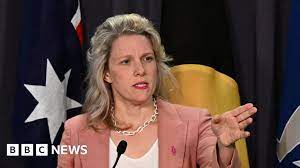It was eliminated in an immigration reform because the government discovered it was “delivering poor economic outcomes” despite being intended to draw in foreign investment.
Critics have long maintained that “corrupt officials” were “parking illicit funds” through the scheme.
There will be more skilled worker visas in its place.
Since the program began in 2012, thousands of Significant Investor visas (SIV) have been awarded; according to government data, 85% of the successful applicants were from China.
Promoted as a means of stimulating foreign investment and fostering innovation, eligibility required an investment of more than A$5 million (£2.6 million;$3.3 million) within Australia.
The government discovered after several reviews that the program had fallen short of its main goals.
It declared in a December policy document that it would eliminate it and instead concentrate on granting more visas to “skilled migrants” who are able to “make outsized contributions to Australia.”
“This visa is not delivering what our country and economy needs, as has been evident for years,” said Clare O’Neil, Minister of Home Affairs, in a statement on Monday.
The program’s supposed “loopholes” and “vulnerabilities” have also drawn a lot of attention.
It was found to have the “potential for money laundering and other nefarious activities” in a government investigation conducted in 2016.
Additionally, it discovered that while the visas provided tax breaks that the general public was paying for, they were bringing individuals to Australia who had “less business acumen” than would have otherwise arrived.
Rejecting those assessments, some asset managers claim that SIV follow-on investment ended up being much larger than the A$5 million buy-in.







